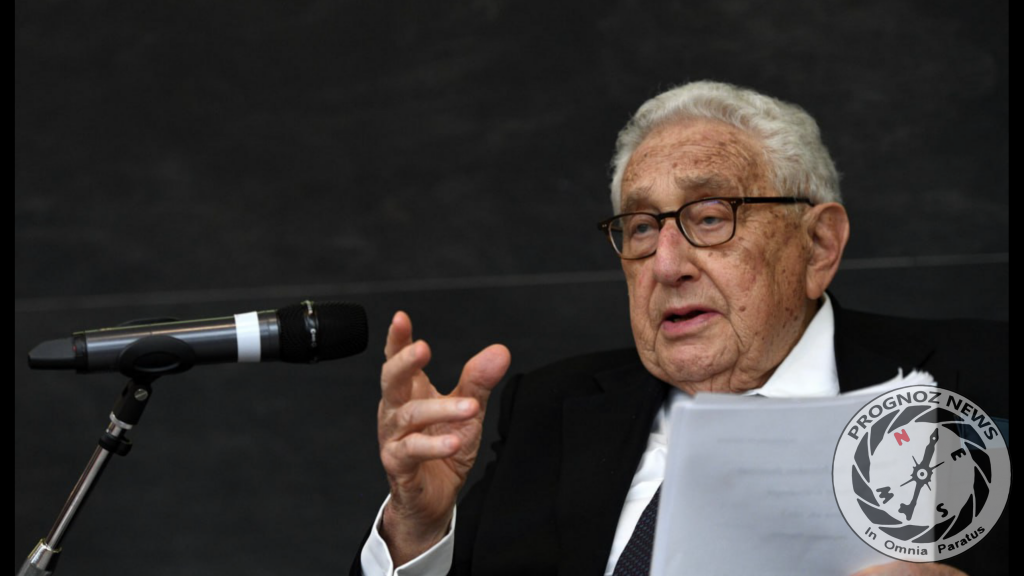𝐀𝐭 𝐭𝐡𝐞 𝐚𝐠𝐞 𝐨𝐟 𝟏𝟎𝟎, 𝐔𝐒 𝐟𝐨𝐫𝐞𝐢𝐠𝐧 𝐩𝐨𝐥𝐢𝐜𝐲 𝐡𝐞𝐚𝐯𝐲𝐰𝐞𝐢𝐠𝐡𝐭 𝐚𝐧𝐝 𝐝𝐢𝐯𝐢𝐬𝐢𝐯𝐞 𝐇𝐞𝐧𝐫𝐲 𝐊𝐢𝐬𝐬𝐢𝐧𝐠𝐞𝐫 𝐩𝐚𝐬𝐬𝐞𝐬 𝐚𝐰𝐚𝐲.
The 100-year-old American diplomat and Nobel laureate Henry Kissinger has gone away. Over the course of his two terms as secretary of state and national security adviser, Henry Kissinger emerged as a major player in American foreign policy. The Paris Peace Accords with North Vietnam, the United States’ historic opening to China, the Soviet Union’s historic arms limitation negotiations, strengthened relations between Israel and its Arab neighbors, and the opening of U.S. diplomatic relations with China were all developments that he helped bring about in the 1970s.
Nixon’s departure in 1974 amidst the Watergate controversy curbed Kissinger’s reign as the major architect of U.S. foreign policy. Even after Nixon left office, he remained a powerful voice in diplomacy and never shied away from expressing his strong thoughts. His support for anti-communist dictatorships, particularly in Latin America, prompted some to accuse him of being a war criminal, while others praised his intelligence and extensive experience.
His 1973 Peace Prize, which he shared with North Vietnamese leader Le Duc Tho, was highly contentious. As concerns surfaced regarding the covert U.S. bombing of Cambodia, two Nobel committee members stepped down in protest of the decision. As a “super secretary of state,” Kissinger was known for his extroversion and confidence, traits that his detractors saw as egotism and paranoia.
Before the Nazi Holocaust began in 1938, Kissinger and his family relocated to the United States from Germany, where he was born in 1923. While working as a consultant for several government departments, he was able to pass along intelligence regarding peace discussions to the Nixon camp through his connections with the Johnson administration.
After becoming president in 1968, Nixon nominated Henry Kissinger to the position of national security adviser. The Paris Peace Accords just served as a catalyst for the eventual Communist conquest of the South during the brutal and bloody Vietnam War. With his appointment as secretary of state in 1973, Kissinger had unchecked power over US foreign policy. In his first “shuttle” trip, he traveled between Damascus and Jerusalem to negotiate a withdrawal of Israeli forces from the Golan Heights with Syria. The historic encounter between Nixon and Mao Zedong in Beijing was a result of Kissinger’s outreach to China in an effort to reduce Soviet influence.
Despite Nixon’s resignation due to the Watergate incident, Kissinger remained in his position as secretary of state when Ford assumed office in 1974. He met with Soviet leader Leonid Brezhnev in Vladivostok later that year and they agreed on the fundamentals of a strategic weapons accord. The inability of Kissinger to convince Israel and Egypt to agree to a second stage of disengagement in the Sinai was a criticism of his diplomatic abilities. After Kissinger departed from government service, he established a lavish consulting firm in New York and continued to serve on corporate boards and forums devoted to international affairs.
source: Reuters
@prognoz_news











